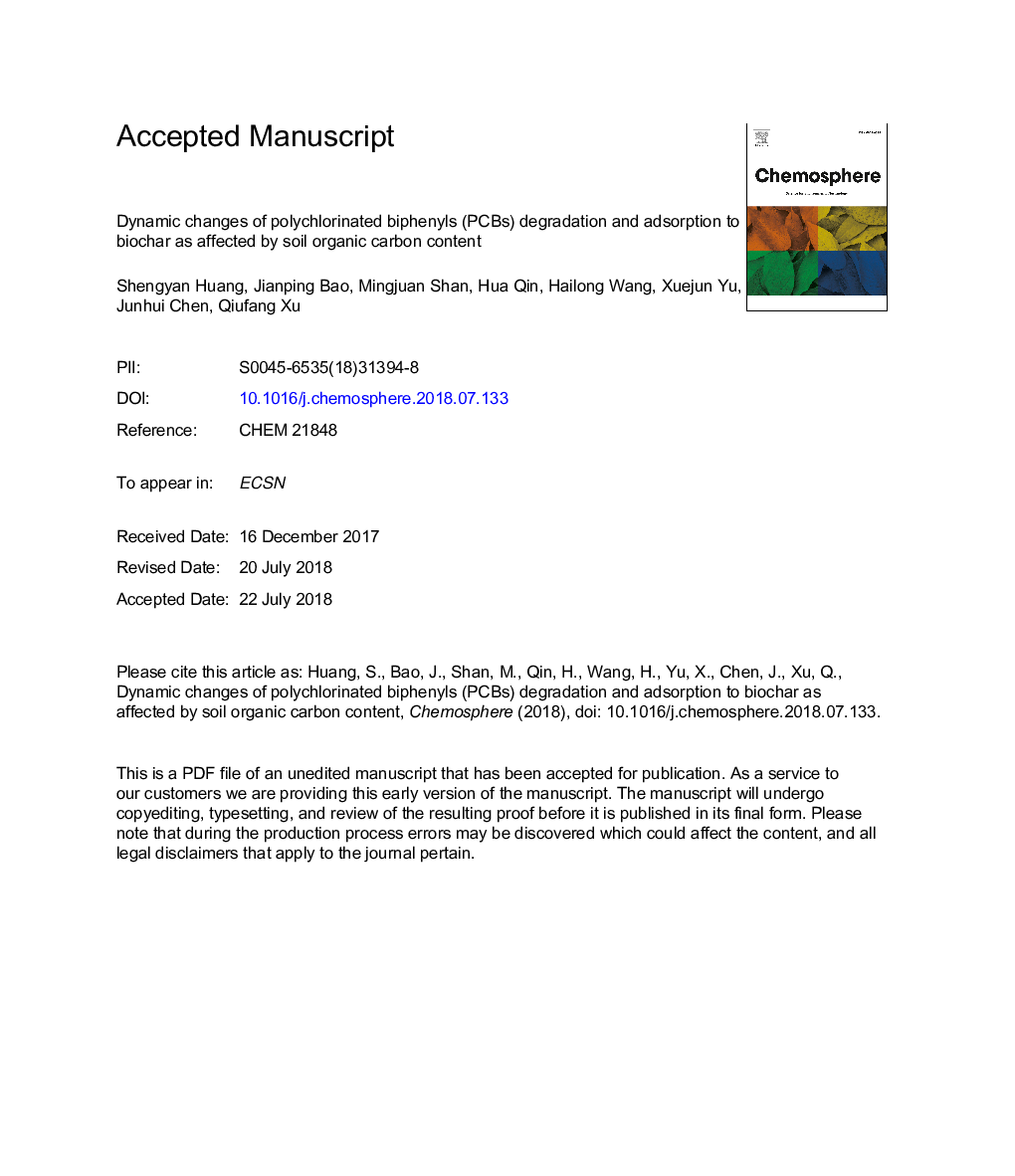| Article ID | Journal | Published Year | Pages | File Type |
|---|---|---|---|---|
| 8850360 | Chemosphere | 2018 | 28 Pages |
Abstract
Biochar amendment constitutes an effective soil remediation strategy for organic contaminants, but how the soil organic carbon (SOC) content affects polychlorinated biphenyls (PCBs) degradation and adsorption to biochar remains unclear. A 120-day biochar amendment experiment was conducted to investigate the dynamic effects of SOC on PCBs degradation in soil and adsorption to biochar. Biochar in low-SOC (LSOC) soils adsorbed a significantly higher amount of PCBs than did that in high-SOC (HSOC) soils. PCBs degradation was also greatly enhanced in LSOC soils when compared with that in HSOC soils after 30 days of biochar amendment. Degradation of di- and tri-chlorobiphenyls (CBs) were significantly enhanced in the LSOC soils than in the HSOC soils, while the biochar in the LSOC soil tended to adsorb significantly higher amount of tetra- and penta-CBs. Compared to biochar adsorption, microbial degradation contributed significantly to soil PCBs removal. Soil bacterial 16S rDNA abundance increased concomitantly with soil PCBs degradation. Regardless of SOC, soil bacterial communities and PCB congener compositions changed significantly after 30 days of biochar amendment. The abundance of Actinobacteria and Firmicutes were negatively correlated with the soil PCBs removal, while Gemmatimonadetes and Proteobacteria were positively correlated. The results of this study revealed that, compared with that to HSOC soils, biochar amendment to LSOC soils may have a greater positive effect on both soil PCB degradation and biochar adsorption. Therefore, the application of bamboo biochar to LSOC soils could be more effective than that to HSOC soils with respect to the remediation of PCBs contamination.
Related Topics
Life Sciences
Environmental Science
Environmental Chemistry
Authors
Shengyan Huang, Jianping Bao, Mingjuan Shan, Hua Qin, Hailong Wang, Xuejun Yu, Junhui Chen, Qiufang Xu,
